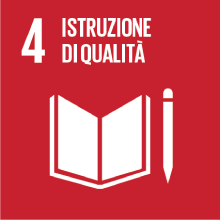MATHEMATICS - 2
- Anno accademico
- 2018/2019 Programmi anni precedenti
- Titolo corso in inglese
- MATHEMATICS - 2
- Codice insegnamento
- ET2018 (AF:278062 AR:158996)
- Modalità
- In presenza
- Crediti formativi universitari
- 6 su 12 di MATHEMATICS
- Livello laurea
- Laurea
- Settore scientifico disciplinare
- SECS-S/06
- Periodo
- 2° Periodo
- Anno corso
- 1
- Sede
- VENEZIA
- Spazio Moodle
- Link allo spazio del corso
Inquadramento dell'insegnamento nel percorso del corso di studio
Risultati di apprendimento attesi
ability to appropriately employ the tools of differential calculus and optimization related to problems that have been formalized in mathematical language. Through the study and discussion of examples and exercises the student is started to contextualize their knowledge in the field of managerial disciplines.
Expected learning outcomes.
A) Knowledge and understanding skills:
a.1) to understand the meaning of the concepts of function, derivative, integral
a.2) to know the main techniques of the calculation for functions of one and two variables
a.3) to understand the fundamentals of financial mathematics
a.4) to know the main operations between matrices and the matrix representation of a linear system
B) Ability to apply knowledge and understanding:
b.1) ability to calculate derivatives and simple integrals
b.2) ability to solve simple optimization problems in one or two variables, even with constraints
b.3) ability to solve simple exercises of classical financial mathematics
b.4) ability to set up and solve systems of linear equations
b.5) ability to interpret all above properties in examples of economic/managerial vocation.
C) (Lifelong) learning skills
c.1) Improved ability to handle a formal language, to make logic deductions; enhanced rigorous rational thinking;
c.2) Improved ability to translate a problem into formal terms, solve it and interpret the solution in terms of the original problem.
Prerequisiti
Contenuti
FIRST MODULE (Mathematics 1)
Domain, limits and derivative of single variable functions.
Single variable optimization.
Integrals.
Present and future values in financial mathematics, streams of cash flow.
SECOND MODULE (Mathematics 2)
Functions of several variables.
Unconstrained and constrained optimization with several variables.
Matrix algebra and linear equations systems.
Testi di riferimento
ISBN:
978-1-292-07461-0 (print);
978-1-292-07465-8 (pdf);
978-1-292-07470-2 (epub)
Modalità di verifica dell'apprendimento
The exam consists of 4-6 problems, on the topics of both Mathematics 1 and Mathematics 2. Abilities acquired by students are verified by requiring them to solve the problems. Their acquired knowledge is verified by asking them to justify in detail their answers, on the basis of the theoretical results (definitions and theorems) presented and practised in class during the course.
The exam is closed-notes and closed-book, but students are allowed to use a pocket calculator (scientific calculators computing derivatives and integrals, or plotting graphs, are not allowed).
Two partial exams are issued during the course time span, one covering the topics of Mathematics 1 and one covering those of Mathematics 2. Undergoing both partial exams is considered equivalent to undergo the final written exam, with overall grade equal to the sum of the grades in the partials.
Metodi didattici
In particular, during the course time, office hours are held in public. Students may come and ask questions or simply sit and listen to other students’ questions and to the instructor’s answers. A further discussion is also possible on appointment.
The topics discussed in class are supported by materials made available for download on the webpage of the course, including:
a) the complete set of slides/lecture notes;
b) weekly sets of homework exercises;
c) a list of previous exams, all completely solved
d) all relevant information about the course, and real time updates.
Lingua di insegnamento
Altre informazioni
A more detailed list of contents and references to the book sections is there available, as well as lecture slides, homework and solved exams.
Accessibility, Disability and Inclusion
Accommodation and support services for students with disabilities and students with specific learning impairments
Ca' Foscari abides by Italian Law (Law 17/1999; Law 170/2010) regarding support services and accommodation available to students with disabilities. This includes students with mobility, visual, hearing and other disabilities (Law 17/1999), and specific learning impairments (Law 170/2010). If you have a disability or impairment that requires accommodations (i.e., alternate testing, readers, note takers or interpreters) please contact the Disability and Accessibility Offices in Student Services: disabilita@unive.it.
Modalità di esame
Obiettivi Agenda 2030 per lo sviluppo sostenibile
Questo insegnamento tratta argomenti connessi alla macroarea "Capitale umano, salute, educazione" e concorre alla realizzazione dei relativi obiettivi ONU dell'Agenda 2030 per lo Sviluppo Sostenibile


